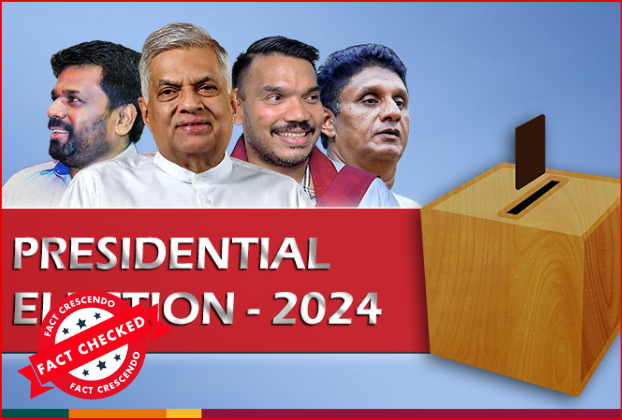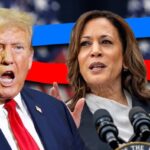As Sri Lanka prepares for its 2024 presidential election, the country stands at a critical juncture. With political instability, economic challenges, and a call for change echoing throughout the island, the election is expected to set the tone for Sri Lanka’s future governance and economic recovery.
### The Political Landscape
The upcoming election comes in the wake of the country’s recent political turmoil and economic crisis, which reached a peak in 2022. Mass protests, sparked by fuel shortages, skyrocketing inflation, and corruption allegations, led to the resignation of then-President Gotabaya Rajapaksa. His departure marked the end of a long-standing political dynasty and opened the door for new political actors to emerge.
The current president, Ranil Wickremesinghe, who stepped in following Rajapaksa’s resignation, has attempted to stabilize the country by negotiating with the International Monetary Fund (IMF) and implementing austerity measures. However, his tenure has been met with mixed reactions. While some credit him with managing a temporary economic rebound, many Sri Lankans are frustrated with ongoing financial struggles and the impact of austerity on daily life.
### Key Contenders and Political Alliances
The 2024 election is expected to feature a broad array of candidates representing both the established political elite and emerging voices of reform. Ranil Wickremesinghe is widely expected to seek re-election, with his platform likely focused on continuing economic recovery and foreign diplomacy, especially regarding relations with China, India, and international creditors.
The opposition, led by Sajith Premadasa of the Samagi Jana Balawegaya (SJB), is preparing to mount a serious challenge. Premadasa, who ran in the 2019 election, has positioned himself as a populist candidate with promises of alleviating economic hardships, providing social services, and reducing the influence of traditional political families.
Meanwhile, the Rajapaksa family, though diminished in power, may still exert influence through their political party, the Sri Lanka Podujana Peramuna (SLPP). Speculation continues as to whether the family will field another candidate or support an alternative leader from the party.
In addition to these major players, new political movements, particularly those driven by younger activists and environmental groups, could shake up the electoral landscape. The 2022 protest movement known as the “Aragalaya” has fueled a desire for fresh leadership, and smaller, reformist parties may capture a significant share of the vote if public discontent with traditional politics persists.
### Economic Recovery and Reform as Central Issues
The key issue dominating the election is the state of Sri Lanka’s economy. The nation defaulted on its foreign debt in 2022, and while IMF agreements and loans have offered temporary relief, high inflation, unemployment, and rising cost of living continue to plague the population. The candidates’ ability to present viable economic solutions will likely determine their success at the polls.
Wickremesinghe’s supporters argue that his experience in international negotiations and financial management is essential for continued recovery. However, critics say that his ties to the political elite and austerity policies have exacerbated the suffering of ordinary citizens.
Premadasa has proposed a more people-centric approach, advocating for increased welfare spending and subsidies to alleviate the immediate needs of the public. His populist rhetoric has resonated with those frustrated by the current administration’s policies, but questions remain about how his government would balance social spending with the need for fiscal responsibility.
### Calls for Political Reform and Accountability
Beyond economic recovery, there are growing calls for significant political reform. The public outrage that led to the downfall of the Rajapaksa regime was fueled not only by economic mismanagement but also by perceptions of corruption and the concentration of power within a few political families. Anti-corruption measures, constitutional reforms, and the empowerment of independent institutions are expected to be major talking points during the election campaign.
Both Wickremesinghe and Premadasa have hinted at reform, though their specific proposals remain vague. Some candidates from smaller parties may push for more radical changes, such as term limits for political leaders and decentralization of power.
### Conclusion
The 2024 Sri Lankan presidential election promises to be one of the most consequential in the country’s history. With the economy still in recovery, political reform on the agenda, and a public eager for change, the election will likely shape the future of governance in Sri Lanka for years to come. Voter turnout, the ability of candidates to present viable solutions to pressing economic issues, and the power dynamics within the political elite will be crucial in determining the outcome of this critical election.


